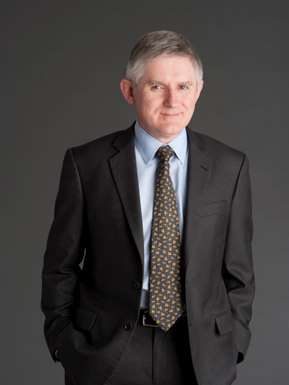Patrick O’Shea, the University of Maryland’s vice president and chief research officer, will be returning to his native country of Ireland after accepting a job to become the next president for his alma mater — the University College Cork.
“I’ve had a great time here at Maryland and had a great experience,” O’Shea said. “I’m conflicted … it’s like I have two homes. I’m an alumnus of the University of Maryland and an alumnus of University … College Cork, so it’s quite emotional for me.”
He will be the 15th president of the 171-year-old university, according to a Baltimore Sun article, and will take over on Feb. 1. The university has over 20,000 full time students, according to a video made by the university.
When applying for the job, O’Shea said, the process for the president position goes through the University College Cork search committee and they then go over the applicants’ qualifications; he was then chosen for the job.
Since his graduate school days, O’Shea has been heavily involved with this university, helping to establish many projects, including the Maryland Center for Applied Electromagnetics, the Maryland Cybersecurity Center, the Institute for Research in Electronics and Applied Physics, the Language Science Center and even the Frederick Douglass statue near Hornbake Library, he added.
“O’Shea deserves tremendous credit … not only for initiatives that this university has been pursuing and how successful those initiatives have become, but also because he has helped guide a very complex research organization through some difficult times,” said Kenneth Gertz, this university’s associate vice president for research development.
“He has been a fixture at Maryland for the last decade. … He has this tremendous energy level and optimism and he loves the university,” Gertz said. “Pat’s optimism and passion just kept everybody going, and as a result we still have this amazing robust research center for us on campus.”
His new leadership role come February will reflect university President Wallace Loh’s responsibilities, O’Shea said.
“I’ll be responsible for the operation oversight, fundings, students, research … everything that goes on at a complicated university. I’ll be the chief executive officer,” he said.
O’Shea, who helped found Maryland NanoCenter, established in 2004 at this university, was determined to find a way to help the university community as well as the surrounding community with this new center, said Gary Rubloff, the center’s director.



